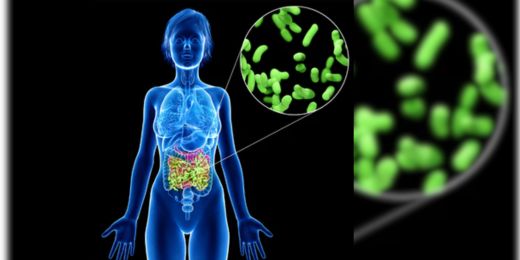FREE NATIONWIDE SHIPPING ON ORDERS $69 AND OVER
FREE NATIONWIDE SHIPPING ON ORDERS $69 AND OVER
Add description, images, menus and links to your mega menu
A column with no settings can be used as a spacer
Link to your collections, sales and even external links
Add up to five columns
Add description, images, menus and links to your mega menu
A column with no settings can be used as a spacer
Link to your collections, sales and even external links
Add up to five columns

What the heck is Microbiome?. Why is it so important and why over-sanitising our lives negatively impacts it.!!
August 18, 2022 3 min read
This is a simplistic overview of an amazingly complex part of us.
Here are a couple of facts that you may not know. Our skin has about 1.5 trillion bacteria living on it. Our gut has in the region of 50 trillion bacteria living in it.
These organisms, our microbiome, can be as important as our own cells.
The microbiome consists of all wanted and unwanted microbes that live on and in our bodies.
Some examples are;
- Bacteria
- Fungi
- Viruses
- Protozoa
The most useful microbes are Bacteria - they help us with
- Digestion
- Protection against other harmful bacteria
- Immune system function
- Vitamin production
The stability or instability of the microbiome can be due to
- Diet - what we consume
- Lifestyle - how much stress - anxiety we have in our lives
- Environment - Toxins and Pathogens we are exposed to on a daily basis.
This small piece is focusing on the toxins we are exposed to every day and how to reduce these with little effort or cost.
Daily Exposure to Toxins and Chemicals.
Exposure to toxins and chemicals can alter the microbiome by
- Killing Microbes
- Changing microbe growth rates
- Changing the nutrients in the gut
- Altering the networks between the microbes.
What are these toxins and chemicals?
There are many chemicals and toxins that can mess with the microbiome which include;
BPA, found in some plastic products as well as personal care products.
Phthalates, that are also found in some plastic products as well as fragrances and perfumes. Click this link to watch a 2 min video by EWG on Phthalates
Triclosan, which can be found in antibacterial and personal care products.
Antiseptic, antibacterial, and antimicrobial products we use in our homes and daily lives - have a negative impact on microbial heath by killing all germs/bacteria good or bad. It has also been shown that when you attempt to kill germs there are a few that build up resistance and become superbugs.
Chemical Disinfectants are extremely toxic and have been linked to dozens of acute and chronic diseases and environmental problems. These toxic disinfectants and sanitizers weaken our immune system and lungs… the very allies we need to protect us from pathogens in the first place!
Remembering of course that a healthy home relies on cleanliness, particularly during the winter months when we tend to spend more time indoors. Especially when the dreaded lurgy is around.
But there are non-toxic ways to have a clean safe home without having to revert to chemical cleaners.
Here are 5 tips for achieving this
Tip # 1
Ensure you are using a non-toxic surfactant-based cleaning solution like Cleanz which lifts and suspends the germs and then with a microfibre cloth they are collected and washed down the drain
Tip # 2
Switch from a hand sanitiser or antibacterial hand wash to soap and water.
Ideally use an all-natural soap like Cleanz Foaming Cleanser, washing your hands for 30 seconds using lukewarm water then rinse and dry.
Tip # 3
Open a window - get that clean fresh air through the house.
Tip # 4
Use a non-toxic approach if some deep sanitation is required.
Our “go-to” is a combination of distilled white vinegar and 3% hydrogen peroxide in water, in separate bottles
– spray with the hydrogen peroxide mixture - let it sit for 5-10 min wipe it thoroughly, then do the same with the vinegar.
This combination works as well as chemical disinfectants without the toxicity factor.
Tip # 5
Be conscious of what you are using around your home that has fragrance.
Many products including air freshers, cleaning products, and personal care products contain fragrance ingredients that are often petrochemical-based.
Instead, consider an essential diffuser - and natural personal care products and skincare.
Leave a comment
Comments will be approved before showing up.

